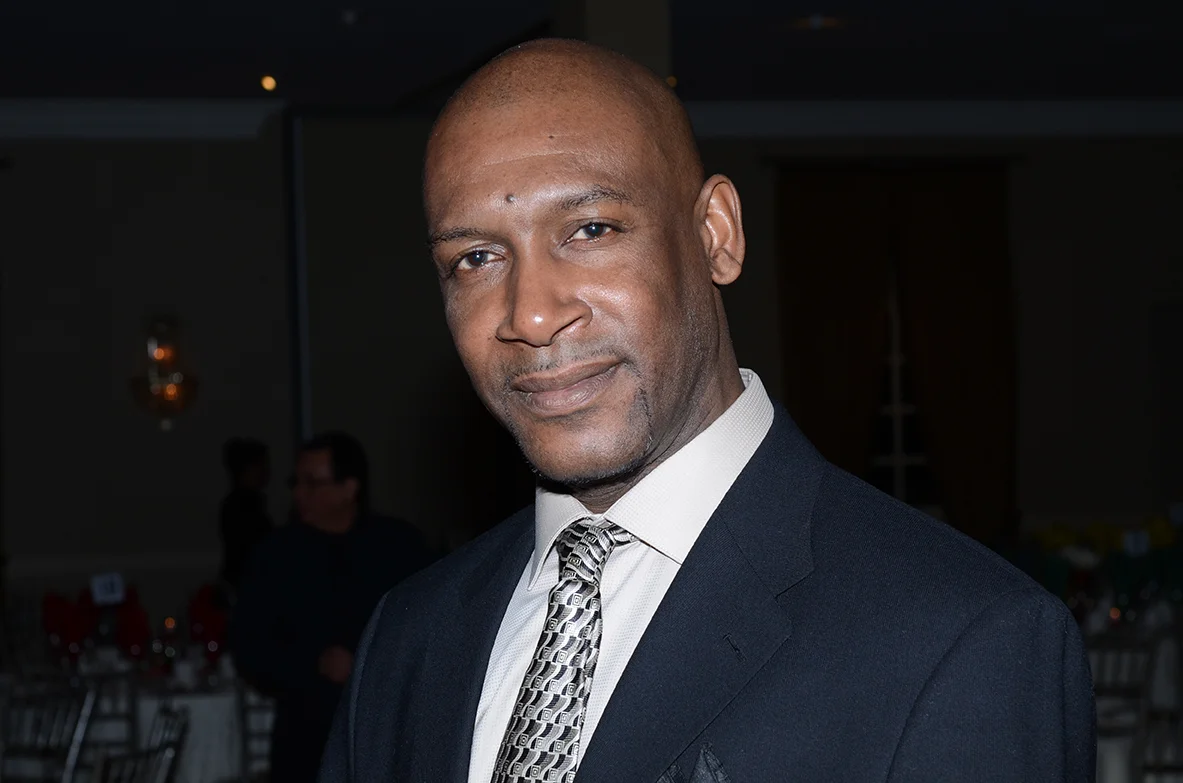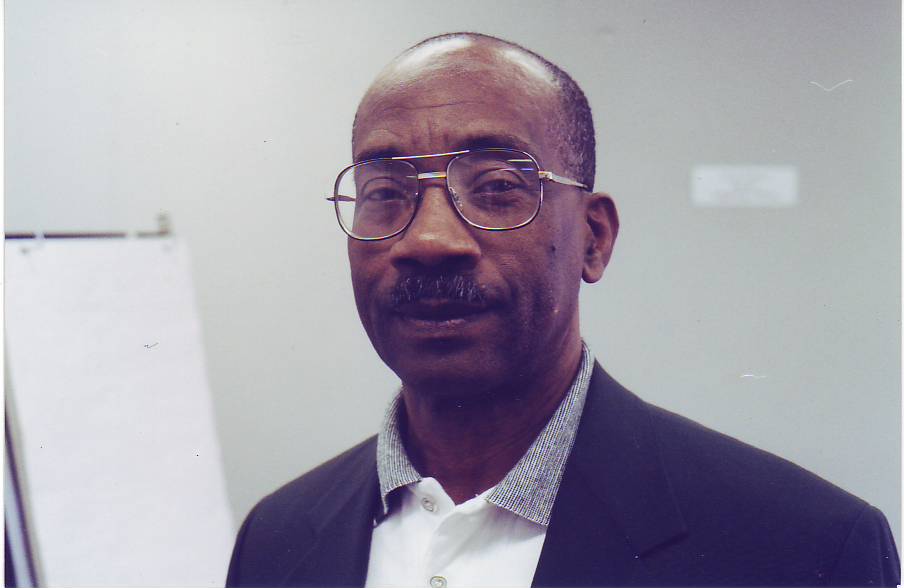Inaugural Cricket Canada Hall of Fame inductees unveiled
Was there ever going to be a Canadian Cricket Hall of Fame in my lifetime?
Former Canadian medium pacer Davis Joseph asked himself that question about a year ago.
Imagine his delight when he was informed last weekend that he was among Cricket Canada’s inaugural inductees as a player and member of the 2003 national team that created history by defeating Bangladesh by 60 runs for Canada’s first and only World Cup win.
“From a team standpoint, that was my most fulfilling moment on the cricket field,” said Grenadian-born Joseph who represented Canada for 19 years before retiring in 2003. “Nobody expected us to win, but I made it a point of letting my teammates know that we had to win that game. I gave everything I had in that match to prove that we had a right to be there.”
A keen student of the game, Joseph represented the Windward Islands in the 1981 and 1982 West Indies youth tournaments prior to his arrival in Canada where he was a member of Overseas for nine seasons before joining Victoria Park which he captained in 1996.
The only bowler to take a hat-trick in the 2000 Toronto & District Cricket Association (TDCA) season, Joseph was a useful lower-order batsman and exceptional fielder.
“He rates his dismissal of the recently retired Sachin Tendulkar, considered one of the greatest batsmen of the modern generation, as one of his career highlights. He bowled the Indian batsman for two in the 1998 Commonwealth Games in Malaysia.
“I enjoyed playing for Canada,” the married father of two children said. “That was everything to me and that meant sacrificing a lot. I took no-pay leave for six months prior to the 2003 World Cup just to be prepared and ready for battle. That was how much playing for this country meant to me. It’s good to be recognized.”
Like Joseph, Rohan Jayasekera was a major contributor to his club and the national program in the 1980s and 1990s.
“I left Sri Lanka where I was still in contention to represent that country to come here and play the sport,” he said. “I relished the nearly 13 years I played for Canada and it’s quite an honour to be rewarded with a place in the sport’s Hall of Fame.”
A product of Royal College which is one of Sri Lanka’s top high schools, Jayasekera recorded a century for Tamil Union on his 1977 debut. The solid right-handed batsman and dependable wicketkeeper had a successful tour of England two years later, scoring 205 runs (av. 51).
Narrowly missing selection as a specialist batsman for Sri Lanka’s first ever Test against England, Jayasekera made his debut in the third Test against Pakistan at Lahore in 1982. He was bowled for 0 and 2 by former Pakistan captain Imran Khan in his only Test.
Five years of first-class cricket produced a modest 356 runs (av. 29.67) before Jayasekera migrated to Canada 32 years ago and became a key member of Grace Church which won four premier league titles in seven years in the 1980s.
In the 1985 final against Overseas, he slammed 116 and, a year later, top-scored with 63 in the championship game against Yorkshire to help his club retain the crown. In 1987, his unbeaten innings of 85 steered his side to a four-wicket win over Vikings and hat-trick of titles.
At age 56, Jayasekera is still active in the sport. Last season, he played a few matches for Centurions in the TDCA Division One league.
Overseas-based John Davison and Ian Billcliff, who were integral parts of the national team for the first decade of 2000, are among the select list of honourees.
Davison represented Canada in 51 first-class matches, scoring 1,177 runs (av. 16.57) and taking 111 wickets (av. 45.61).
The oldest player in the last World Cup at age 40 was introduced to Canadian cricket by former Toronto Cricket Club player Andrew Bracht who was visiting Australia. They met at the Melbourne Cricket Ground.
Moving to Australia at a young age, Davison played Grade cricket in Melbourne and attended the Australia Cricket Academy in 1993. He also represented Australian state teams Victoria and South Australia.
The aggressive right-arm off-spinner, hard-hitting batsman and brilliant fielder made an impact in his first season in the TDCA premier league in 2000 as Toronto Cricket Club’s player/coach, heading the bowling average (12.83) for his 24 wickets and finishing second in the batting average with 30.82 from 339 runs.
The impressive showing led to his national debut in the inaugural Americas Cup tournament which Canada won and his appearance in the 2001 International Cricket Council (ICC) Trophy tournament for Associates. Both competitions took place in the Greater Toronto Area.
He played in all 10 ICC Trophy matches, registering 145 runs and capturing 15 wickets to help Canada qualify for the 2003 World Cup in South Africa where he made history by hitting the fastest World Cup century (67 balls) at the time against the West Indies. His superb innings of 111 included six sixes.
Davison followed this thrilling innings with the third fastest World Cup half-century against New Zealand. He led Canada in the batting and bowling averages with 37.7 from 226 runs and 18.7 from 10 wickets.
A year later, Davison had a dream start as Canada’s captain with an incredible all-round performance in the Intercontinental Cup match against the United States in Florida. In one of the most dominant bowling displays in first-class cricket, he claimed a national record 17 wickets and top-scored with 84 in the first innings.
His match-haul of 17-137, the 17th best bowling figures in first-class cricket, eclipsed the previous best national mark of 14-154 by Toronto Cricket Club fast bowler Jack Laing against the USA in 1896. It was also the best first-class figures in 48 years since late England off-spinner Jim Laker took 19-90 against Australia in the 1956 Old Trafford Test.
“John brought credibility when he came to Canadian cricket,” said former Cricket Canada High Performance manager Ron Aldridge. “He was outspoken which is OK and he was also a positive influence.”
Billcliff grew up in New Zealand and played for Otago alongside that country’s former captain Ken Rutherford who played 56 Tests. He also turned out for Auckland and Wellington between 1990 and 1999 before being recruited by Canada for the 2001 ICC Trophy tournament.
He played a significant role in Canada’s first World Cup win against Bangladesh, scoring a game-high 42 off 63 balls with six boundaries. Overall, he played in 19 One-Day Internationals and 46 first-class matches.
Tony Clarke, an outstanding opening batsman, off-spinner and slip fielder, is entering his second cricket Hall of Fame in five years. He led Toronto Cricket Club, which inducted him in 2009, to six first division championships in the 1970s. The all-rounder also captained Canada on several occasions, including the Marylebone Cricket Club’s 1967 visit and tours to Jamaica in 1973 and Barbados four years later when the opposition included Wes Hall who was with Banks at the time, Charlie Griffith who played for Empire and Carlton opener Desmond Haynes.
Ave Mogan, who made history in 1980 as a 17-year old by becoming the first female player to participate in the TDCA league, is the only female inductee.
Ave Mogan
She represented Caribbean Limers for 15 seasons, winning four straight bowling titles and spent a decade with Pegasus whose team included former West Indies batsman and Canadian coach Larry Gomes and ex-Canadian players Sunil Dhaniram and Austin Codrington.
Prior to coming to Canada, Mogan turned out for Guyana as a 14-year-old in the 1977 West Indies competition.
The other Hall of Fame induction class members in the Player category are 1979 World Cup members Garnet Brisbane, Franklyn Dennis, Cecil Marshall, Tariq Javed, Bryan Mauricette and John Vaughan; middle-order batsman Farouk Kirmani who was a senior team member for 12 years; Cricket Canada’s domestic development manager and former national captain Ingleton Liburd; Paul Prashad and his late brother Martin Prashad who succumbed to cancer in October 2000 and India-born Joe Harris who moved to Barbados at age 11 and represented the Combined Schools, Pickwick and the Barbados junior and senior teams before relocating to Canada in 1992.
He made his Canadian debut in the 1997 Red Stripe Bowl limited-overs series in Guyana and was elevated to the national team captaincy two years later for the West Indies one-day tournament.






